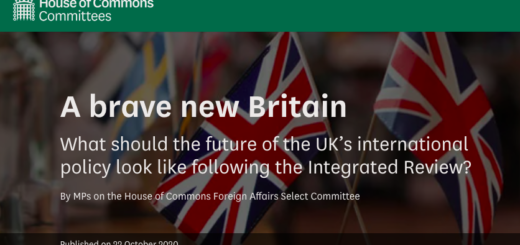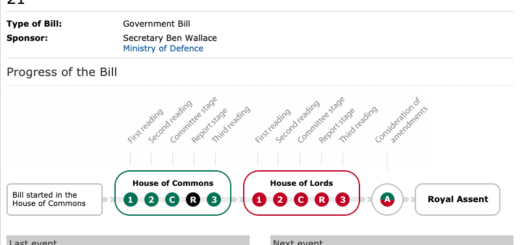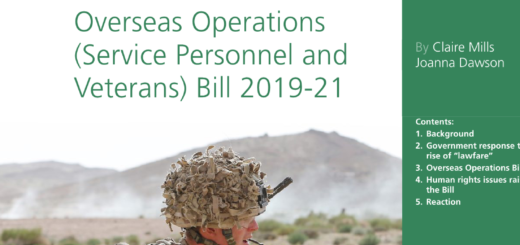During the Queen’s Speech on 19 December 2019, the Government announced plans to conduct an Integrated Security, Defence and Foreign Policy Review. Heralded as “the most radical reassessment of [the UK’s] place in the world since the end of the Cold War”, the review promises to “cover all aspects of international policy from defence to diplomacy and development”.
In the first stage of a two-part Inquiry on the Integrated Security, Defence and Foreign Policy Review, the Defence Committee is exploring how Government should conduct this exercise. The Committee is looking to identify lessons learned from the timing, methodology and structure of previous reviews of the UK’s security and defence and consider international best practice.
This Review provides a unique opportunity to clearly articulate a cross-departmental strategy in a rapidly changing world. Creating an agile and effective strategy demands that defence, foreign policy and developmental aims and policies are properly integrated.
Creating an effective, future-proofed strategy requires a holistic understanding of the complex global environment, in particular of the root causes of instabilities. By drawing on cross-departmental strengths and resources, the tools available to the UK exponentially increase, opening the door to alternative responses to security challenges that address root causes over time. By including integrated measures to monitor and evaluate progress and capture best practice and lessons learnt as part of the strategy, UK policies will remain agile and adapt to a changing international landscape. Furthermore, the strong commitment to British values – democracy, rights and protections – provides us with the opportunity to strengthen our global position and influence allies to follow our example.
Drawing upon the findings of the All-Party Parliamentary Group on Drones’ two-year expert-led Inquiry and the Group’s broader work examining challenges in modern warfare, the Group’s submission underlines the necessity for the Integrated Review to be truly holistic and sufficiently broad in scope; extended in its timeframe; ensure real effectiveness; and guarantee widespread participation. It focussed on these areas:
Timing: The unprecedented impact of COVID-19 requires that the Integrated Review deadline be revised and extended. A first-class Review will require adequate time to ensure 1) the government’s capacity to input; 2) implementing of lessons learnt; 3) alignment with the spending review, and; 4) broad expert participation.
Scope: We are at a critical juncture where the UK needs to define its role in dramatically different circumstances to those we have previously worked to. As articulated by the House of Lords International Relations Committee: “in a world where influence can no longer be taken for granted and where shifts in economic and political power relationships are not working to our advantage, a more agile, active and flexible approach to foreign policy must now be developed”. This necessitates a holistic reassessment of the UK’s strategic aims and how we measure success, and a deep understanding of security challenges and the policy responses to address them. Lessons from Operation Shader and other military partnerships illustrate crucial gaps in information and policy, and ongoing flaws in how we have evaluated operational success to date. With the rise of ‘grey zones’ of military operations that fall below the threshold of all-out war, the Review will not only need to address these gaps to ensure effective policy, but address the fundamental rules by which the UK intends to work, and the global environment it wishes to see.
Effectiveness: The Integrated Review offers a unique opportunity for Departments to engage in joined up analysis and implementation to create a more integrated, cohesive, agile and comprehensive set of foreign policy tools that effectively utilise both soft and hard power. By articulating shared outcomes, outlining roles and responsibilities for each department and clearly defining lines of oversight and assessment, the Strategy will adapt to a changing reality, ensuring it remains effective by design. In addition, The Integrated Review provides an opportunity to correct critical gaps in Parliamentary scrutiny and establish the necessary measures to ensure the effective and continuous evaluation of policy in Parliament.
Broad participation: Considering the scale and detail of the subject matter, a successful strategy will require significant input, most significantly from Parliamentarians, committees, subject matter experts and policymakers. The inclusion of Parliament will secure wider political buy-in, whilst committees would provide a wealth of institutional knowledge, expert networks, and an understanding of contemporary and emerging issues.
You can read the full submission here.




